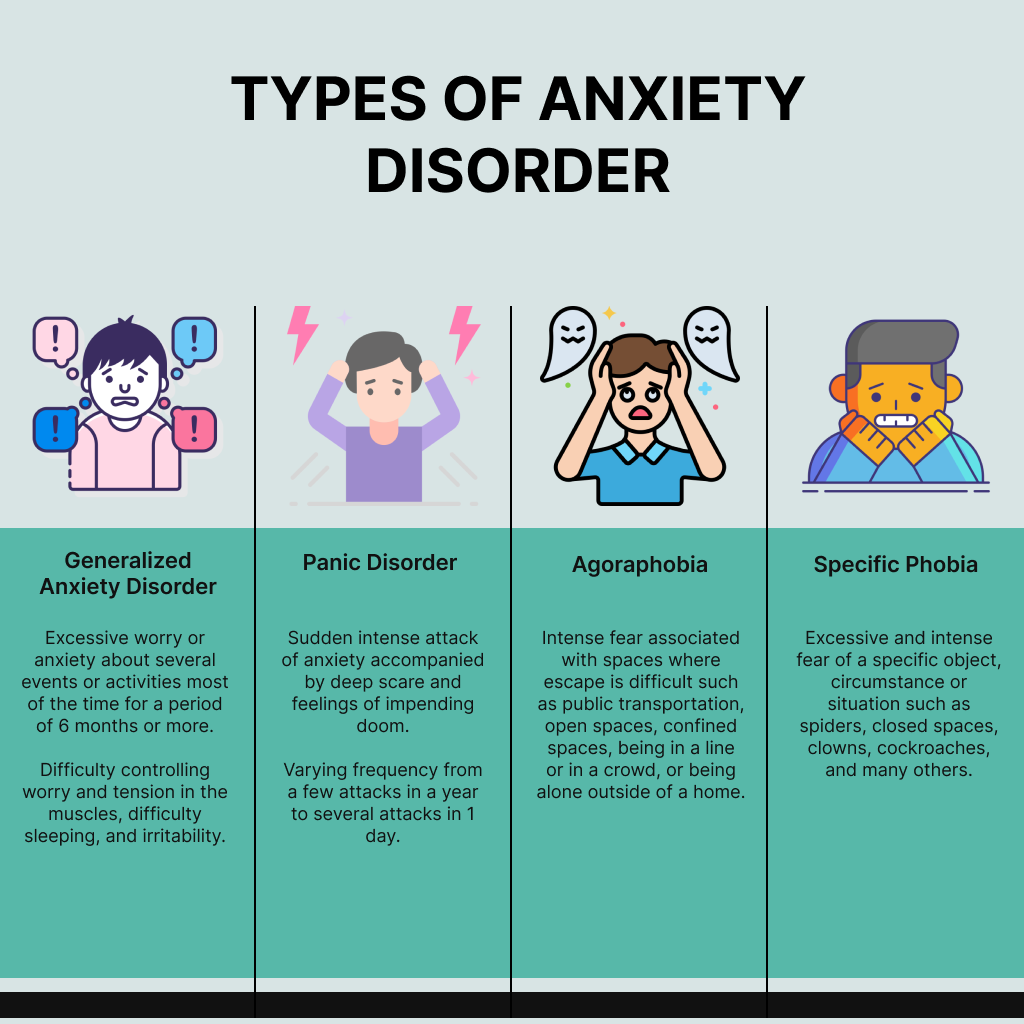Anxiety Disorders are very common.
Anxiety is normal and is supposed to help us prepare for events in our lives. When anxiety causes us distress or interrupts the way we function, then it needs intervention by a specialist.
How do you know you are experiencing anxiety? What are the signs and symptoms?
- The person will describe themselves as “nervous” or “frightened”.
- Headaches, excessive perspiration, heart palpitations, tightness in the chest and upset stomach.
- Inability to sit still or stand for long periods.
- Crawling sensation to skin.
- Sensation of needle pricks to skin.
- Numbness to hands and feet.
- Racing thoughts.
- Negative thinking.
Severe anxiety is called panic. In panic, persons experience:
- Difficulty thinking.
- May feel like they can’t breathe or like they are suffocating.
- Some persons may feel like they are dying, this feeling usually lasts less than 20 minutes.
- Some young persons, who are fit and otherwise healthy, may feel like they are having a heart attack.
- Some persons may faint
If your anxiety occurs without a cause or little things cause you to feel anxious and the anxiety interrupts how you function then you may need help.
What are some types of anxiety disorders?

Generalized Anxiety Disorder (GAD)
GAD is described as excessive worry or anxiety about several events or activities most of the time for a period of 6 months or more. Persons who suffer from this disorder find that the worry is difficult to control and is associated with tension in the muscles, difficulty sleeping and irritability.
Patients with GAD worry excessively about several different problems, such as their finances, their relationships, their jobs and their health.
Persons with this disorder are convinced that catastrophe in the different areas of worry are inevitable.
Panic Disorder
A Panic Disorder is a sudden intense attack of anxiety. It is often accompanied by a deep scare and feelings of impending doom. The amount of attacks can vary from a few in one year to several attacks in 1 day.
Agoraphobia
Agoraphobia can be described as an intense fear associated with a space where escape is difficult. The spaces include public transportation, open spaces, confined spaces, being in a line or in a crowd or being alone outside of a home.
Specific Phobia
This is an excessive intense fear of a specific object, a circumstance or a specific situation.
Examples include: spiders, closed spaces, clowns, cockroaches and many others.
Social Anxiety Disorder
This is marked by a fear of being judged or scrutinized in a social situation. There is a fear that others will notice the anxiety causing additional judgment, embarrassment or rejection. Avoidance behaviors of the feared social situation occurs and the fear or anxiety is out of proportion to the social risk.
Myths vs Facts about Anxiety Disorders
| Myth | Fact |
| Anxiety is a feeling not a disorder | Anxiety, nervousness and worry are truly emotional responses to stressful situations but when these responses negatively affect and control your daily lives then it should be considered a disorder. |
| Some people are naturally anxious | The term “ worry wart” is often used to describe persons who suffer from anxiety however an anxiety disorder is not a characteristic of a person’s personality, it is instead a diagnosable medical condition. |
| Anxiety isn’t serious or harmful | Anxiety Disorders may range in severity but all cases of anxiety may cause some degree of impairment that impacts one’s daily life. |
| Avoiding stress can stop anxiety | Avoiding situations or stressors that cause anxiety may cause a temporary respite but does not cure the anxiety disorder. |
| Anxiety will go away on its own. | Anxiety is a serious and debilitating disorder which if left untreated often gets worse. Anxiety does not go away on its own instead you will find that person may often self medicate with drugs and alcohol to treat their anxiety. |
If you have any of the symptoms listed above and it is disrupting your life then you should consult your nearest mental health professional. Anxiety disorders are treatable. With treatment, the quality of your life can be greatly improved.
